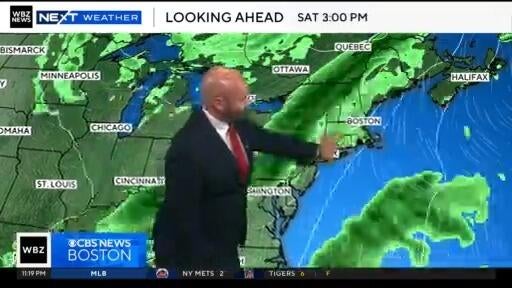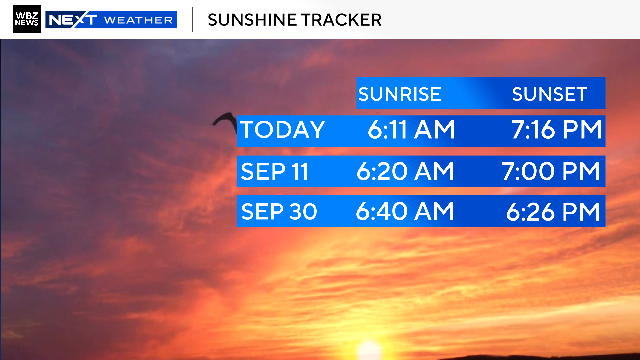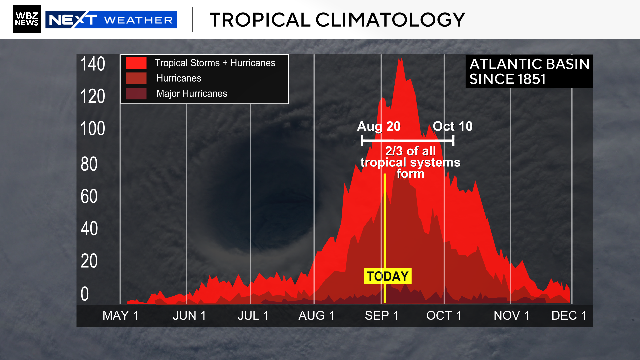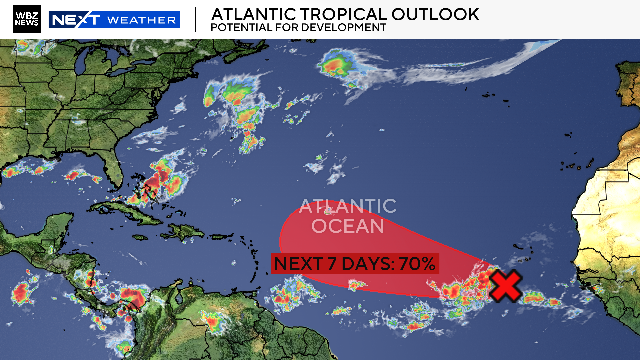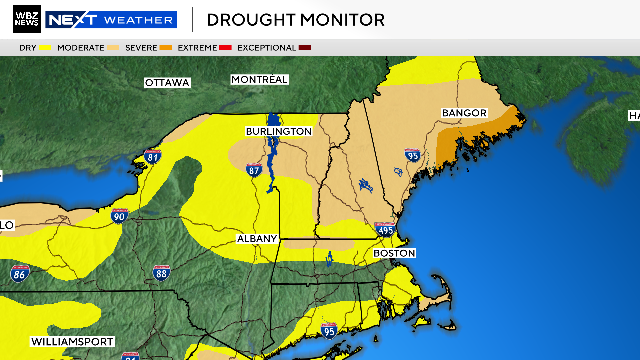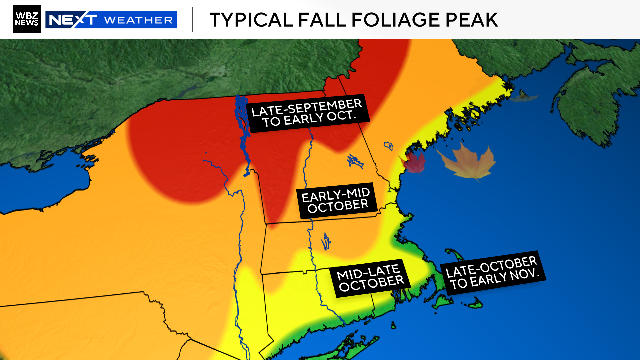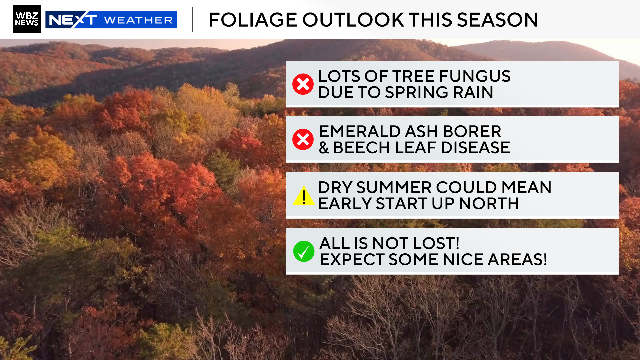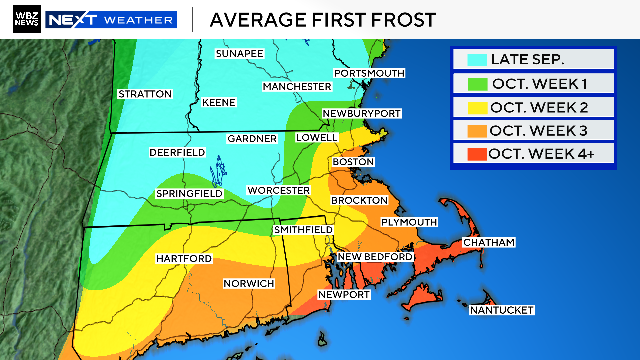Fall has arrived. Here's what you can expect from foliage to weather across Massachusetts.
Meteorological fall is here and the foliage, weather and outdoor activities are all about to change across Massachusetts.
Here's what you can expect in the coming weeks.
The average high temperatures in September drop from a very summer-like 78 degrees to a crisp 68 degrees in just 30 days.
Probably my least favorite thing about September, the loss of daylight. During this month, we will lose an hour and 22 minutes of light.
After September 11, our sunsets will now occur before 7 p.m.
Peak hurricane season
September is the month when the tropical Atlantic Ocean is typically at its peak. Ocean temperatures are at their warmest and we turn our attention to the African coast, watching for storms to form into hurricanes as they move from east to west across the Tropics.
This season has been relatively quiet thus far, but as we always say, it only takes one storm to leave a lasting impression on a hurricane season.
Currently, there is one area of concern off of Africa. This is likely to become a tropical storm and eventually, Hurricane Gabrielle. Most long-range models bring Gabrielle north of the Caribbean Islands next week and curve it out to sea. We shall see.
Drought concerns
Most of New England is currently in some classification of drought.
New Hampshire and Maine are most concerning, ranging from moderate to severe drought.
We had a very dry summer. Boston had a little over 5 inches of rain in June, July and August combined, making this the 12th driest summer in the city on record.
In fact, every month this year had below average rainfall with one exception, May. I am sure you probably remember that stretch of rainy weekends which peaked in late April and May. Since then, it has been exceptionally dry.
Currently there are no signs of any obvious pattern change. We have some showers in the forecast Friday and Saturday but nothing "drought-busting."
It may take some sort of tropical system or its remnants to make a serious dent in our rainfall deficit, especially in Northern New England.
Fall foliage forecast
Typically, September is the month when the rush of colors begins. By the end of this month, many of the highest elevations in Vermont and New Hampshire are likely to be at or near peak color.
Unfortunately, we have a few things working against us this year when it comes to fall foliage.
All that rain that fell in April in May coincided with leaf out and that led to an abundance of leaf/tree fungus.
Combine that with a very dry summer and a lot of the trees in our area are somewhat "stressed."
Many times, when you have several dry months leading into a foliage season, you get a vibrant burst of early color (perhaps 1-2 weeks earlier than normal), followed by a quick leaf drop. Given how dry it has been up north, that is certainly a possibility this year.
In addition to the weather concerns, we have a few pests that are running rampant in our forests.
The emerald ash borer (an invasive beetle) has been around for several years now and is slowly infecting many of our ash trees. Of even greater concern this year is the arrival of something called "Beech Leaf Disease."
We saw signs of this last year, arriving from the Midwest, but this year, it has become a major problem and undoubtedly will lead to an early leaf drop and, in many cases, the death of many American and European Beech trees.
All is not lost! Even with all the issues stated above, we still expect some very nice color in many areas this fall. It may just require a bit more patience and travel to find the premier colors this year.
First frost ends growing season
Once you start seeing the mums in all the garden centers and grocery stores, it is a sure sign that the growing season is nearly over. Mums are popular this time of year because they are hardier than most flowers and can generally survive those early, cooler, fall nights.
Typically, by the end of September, we see some of the first frosts of the season in the Berkshires and parts of northern Worcester County.
The closer you live to Boston and the ocean, the later your first frost. Quite frequently, the outdoor plants can survive through Halloween in the city and over parts of the South Coast.
